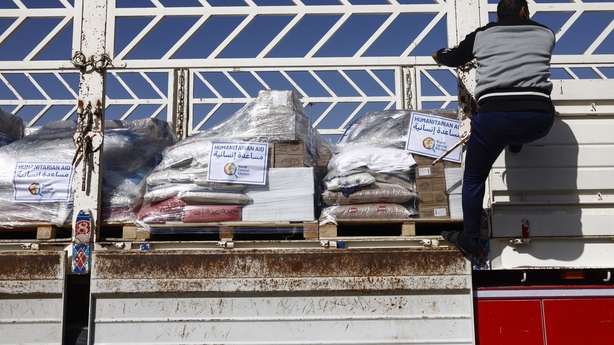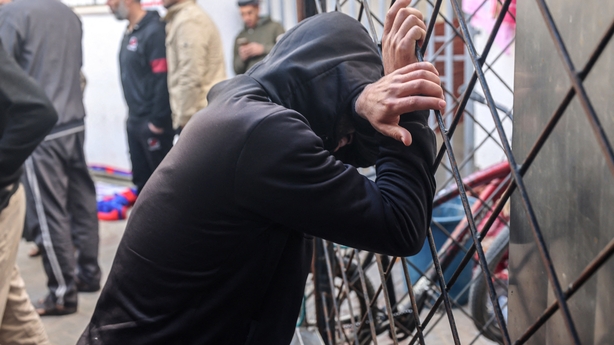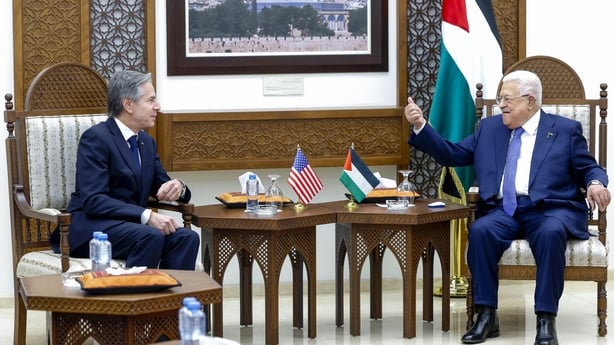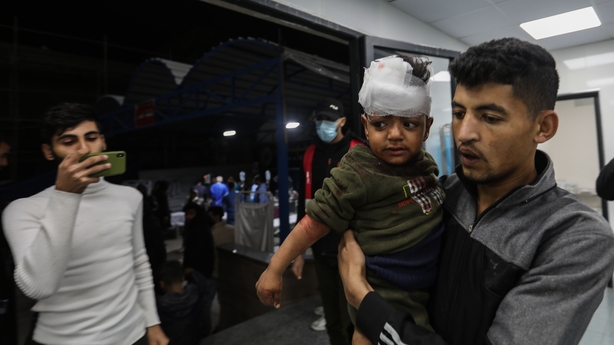The World Health Organization has cancelled another planned medical aid mission to Gaza over security concerns, the sixth such cancellation in two weeks, and has sounded fresh alarm over the spread of infectious disease there.
WHO Director-General Tedros Adhanom Ghebreyesus said it was the sixth mission to northern Gaza cancelled by the UN agency because requests to visit had not been approved, or assurances over security provided since its last visit, on 26 December.
"Intense bombardment, restrictions on movement, fuel shortage and interrupted communications make it impossible for WHO and our partners to reach those in need," he told a virtual press conference from Geneva. "We call on Israel to approve requests by WHO and other partners to deliver humanitarian aid."
The Israeli offensive launched in the wake of a deadly rampage by Hamas in southern Israel on 7 October has displaced most of Gaza's 2.3 million population, left many homes and civilian infrastructure in ruins, and caused acute shortages of food, water and medicine. Fighting has intensified recently despite a pledge this week to scale down the war.

The WHO has said only 15 hospitals in Gaza remain functional, even partially. The deteriorating conditions are also a perfect breeding ground for infectious disease, the agency said.
The Organization's representative in Gaza, Richard Peeperkorn, said the number of diarrhoea cases among children under 5 was 20 times higher in November 2023 compared to the average of the previous year.
He added that he was hopeful a WHO mission planned for Thursday to northern Gaza could go ahead. But he added that about 16 or 17 of 21 planned missions from the wider UN have already been cancelled so far this month.
Mike Ryan, WHO emergencies director, said it would be a "gargantuan" task to restore the public health system in Gaza even with a ceasefire.

It comes as Israeli strikes in southern and central Gaza intensify, despite a pledge by Israel that it would pull out some troops and shift to a more targeted campaign, and pleading from its ally Washington to kill fewer civilians.
Israel has said this week it is planning to begin drawing down troops, at least from the northern part of Gaza, after weeks of US pressure to scale down its operations and shift to what Washington says should be a more targeted campaign.
But the fighting appears to be as intense as ever, especially in the southern and central areas where Israeli forces launched ground advances last month.
In Rafah, on the southern edge of the enclave, relatives wept by the bodies of 15 members of the Nofal family laid out at a hospital morgue this morning after their home was obliterated by an Israeli air strike overnight.
At the site of the strike, where a huge crater had been blasted in the floor of a building, neighbours clambered through the ruins, strewn with blood-soaked mattresses and broken toys.
Um Ayman al-Najjar, whose daughter and niece were killed, was bundled against the cold in the wreckage: "We woke up surrounded by all this rubble on top of our heads, hit after hit. I don't know how we got out, stepping above things, blood shedding from us."
Israel has killed more than 23,000 Palestinians in Gaza since launching its campaign to eradicate the Hamas militant group that runs the enclave, after Hamas fighters killed 1,200 Israelis and captured 240 hostages in a rampage on 7 October.

US Secretary of State Antony Blinken, on his fourth trip to the region since the war began, went to Ramallah today and met Palestinian leaders, including Palestinian Authority (PA) President Mahmoud Abbas, in the Israeli-occupied West Bank.
The PA, which exercises limited self-rule in the West Bank and accepts Israel's right to exist, lost control of Gaza in 2007 to Hamas, which is sworn to Israel's destruction.
Mr Blinken and Mr Abbas discussed US efforts to address extremist violence in the West Bank and minimise civilian harm in Gaza in their meeting, the US State Department said.
The two officials also discussed "administrative reforms, which, if implemented, would benefit the Palestinian people," State Department spokesman Matthew Miller said in a statement.
We need your consent to load this rte-player contentWe use rte-player to manage extra content that can set cookies on your device and collect data about your activity. Please review their details and accept them to load the content.Manage Preferences
Mr Blinken has also met Israeli leaders and visited nearby Arab states, in search of a future settlement Gaza, which has been laid to waste by Israeli bombardment creating a humanitarian crisis for its 2.3 million residents.
Washington wants Israel to give the Ramallah-based PA a future role in governing Gaza; Israel, which says it wants control of Gaza's security indefinitely, is reluctant.
Mr Blinken said yesterday that Israel had to make "hard choices" and must keep alive hopes of an independent Palestinian state if it wants to normalise relations with Arab neighbours.
"Israel must be a partner to Palestinian leaders who are willing to lead their people living side by side in peace with Israel and as neighbours," he said in Tel Aviv yesterday.

Words written in butter
Despite a public assertion by Israel since the New Year that it is scaling back the war, Gaza residents say they have seen no let-up.
The northern half of the enclave is still off-limits, and the southern half has become a full-blown war zone in recent weeks.
Nearly the entire population has been driven from their homes at least once, many displaced several times as Israeli forces advance.
Um Ahmed, a mother of five from Gaza city now sheltering in a tent in Rafah, said Gazans had hoped Mr Blinken's visit meant they would be allowed to return to their homes.
"It is like words written in butter, it soon disappeared with the rise of the sun. That was the words of Blinken, fake," she said.
Residents of Bureij, Nusseirat, and Maghazi in central Gaza reported intensive bombardment overnight, with Israeli tanks that launched an offensive there around Christmas pushing deeper into Bureij and Maghazi.
In Nusseirat, a new wave of displacement was under way, a day after Israel dropped new warning leaflets for residents of several districts to evacuate their homes and head west to Deiral-Balah.
Israeli bombing was also taking place there, with the Palestinian Red Crescent releasing video showing ambulances arriving at a hospital with the dead and wounded, including children.

